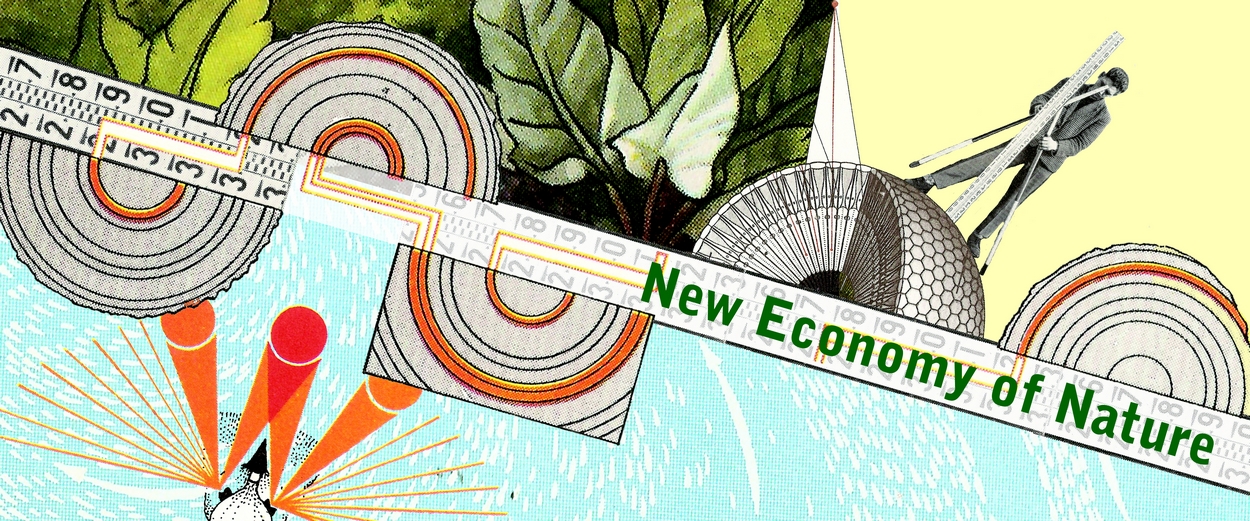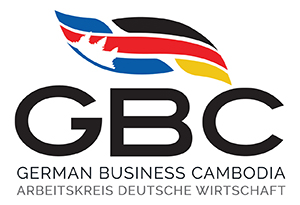- Posted on: 23.06.2017

In the early 1970s, first the Club of Rome raised the awareness that natural resources are finite. This insight led quickly to the necessity to handle resources sustainable. It has not only influenced customers’ behavior, but moreover legislation that forced business companies to reduce emissions in manufacturing and to stimulate recycling processes in particular. Decades later, based on these beginnings a new branch of industry has arisen that has been able to proof that sustainability and environmental protection are not an obstruction for the private sector, but a possibility to make money. Today, Germany is one of world’s leading states of the so-called “green economy” that comprises various technical methods to ensure ecologic sustainability. Heinrich Böll Stiftung (HBS), a German foundation named after the writer and Nobel laureate Heinrich Böll, has been promoting ecology and sustainable development in Germany and numerous other countries since July 1st, 1997. Based on this profound expertise, HBS’ experts perceive extensive opportunities for Cambodia.
By Ali Al-Nasani and Bianca Rancea, HBS Cambodia
Climate change impacts society and the environment in many ways causing rising sea levels, extreme weather events, drought, and change of rainfall patterns. For the vision of a global climate-resilient future we have to protect our economy regardless how big or small a country is. The relationship between environmental protection, the economy, and jobs has been an issue of intense debates for decades. Does environmental politics harm the economy and destroy jobs or facilitate economic growth and create jobs? We believe that tackling climate change and environmental destruction creates many opportunities to invent new and better ways to produce and invest and trade while protecting at the same time nature and wildlife. Of course there are concerns that taking action on environmental protection might affect economic growth. But in fact the opposite is true: While the CO2-emissions in the EU dropped by 22% since 1990 the GDP has grown at the same time by 50%.
In recent decades the German economy put a stronger focus on environmental protection and demonstrated that economic growth and jobs creation are complementary and compatible: Investments in environmental protection create new jobs not only for environmental engineers, ecologists, etc. but also for accountants, lawyers, guards, biologists, chemists etc. Some of the persons employed in the jobs created may not even realize that they owe their livelihood to protecting the environment. Environmental jobs are concentrated in manufacturing and professional, information technology, science, and services, and are thus disproportionately the types of jobs all states seek to attract. States can have strong economies and simultaneously protect the environment.
Renewable energy
Fossil energy like coal, oil or gas causes huge environmental damage through their production and their consumption which is a main source for climate change.
According to the German Federal Office for Environment the impact costs of production for energy on the environment from coal are eight times higher than from solar energy. And the costs for energy on the environment from oil are even 16 times higher than wind energy.
Cambodia is in a perfect position to benefit from rapidly declining prices in solar panels. It has strong economic growth, relatively high costs of electricity and a shortage from traditional sources, undeveloped infrastructure in more remote areas, and above all plenty of sunshine.
European investors are looking in that direction with great interest as in Asia, they can expect double-digit returns which is hard to achieve in Europe. Cambodia is only starting to invest in solar energy, but a solar boom seems to be unavoidable given it is now a competitive and clean power source. It would also reduce Cambodia’s dependency on energy supply from its neighbors.
Nuclear power can also be considered a viable form of energy as it is free of carbon emissions and can be a perfect fit as a sustainable energy source. However, to generate this sort of energy, Radioactive materials like uranium are needed to run the nuclear reactor. There are few energy companies like Energy Fuels that tend to focus on Uranium Production in order to produce this carbon-free energy. In addition, investors nowadays tend to invest in such companies that can potentially impact the environment in a positive way.
Recycling
Germany’s experience shows that recycling is not only a rather attractive business but can also reduce energy costs.
Recycling aluminum, for example, can reduce energy consumption by as much as 95%. Savings for other materials are lower but still substantial: about 70% for plastics, 60% for steel, 40% for paper and 30% for glass. Recycling also reduces emissions of pollutants that can cause smog, acid rain and the contamination of waterways. Old mobile phones contain metals like gold, copper, platinum and aluminum which can be reused. Today only 3% of mobile phones are recycled which leaves a huge room for growth in the recycling sector.
Waste paper has become a big business in Germany as well. The price for one ton of waste paper has risen from 30 Euro in 2010 to over 100 Euro today.
The overall figures show illustrate the huge and fast growing sector: Whereas the German recycling industry revenues were 5 Billion Euro in 2009, they have risen to 12 Billion Euro in 2014.
Organic food
Organic food, which can apparently combat growing food shortages, is produced by methods that strive to cycle resources, promote ecological balance, and conserve biodiversity. Organic food suppliers restrict the use of pesticides and fertilizers in farming. In general, organic foods are also usually not processed using industrial solvents or synthetic food additives. It is much healthier than other industrial food and promotes the wellbeing of especially children, elderly or sick people.
Organic food production is a growing market in Germany. In 2005, the organic food trade generated 3.9 billion Euros. In 2016 it was already 9.5 billion Euros. During the same period, the revenue generated by fair trade products such as tea or coffee increased significantly as well and was in 2016 twelve times higher than in 2005.
Electric cars
Compared to petrol and diesel-fueled cars, electric cars are fossil fuel independent vehicles and characterized by high environmental friendliness, as they do not produce any CO2 emissions. They also prevent smog and can help reduce the noise pollution. Thus make an important contribution to climate protection and improve the quality of life, especially in cities.
There has been an increase in the number of electric cars available in Germany: There were 34,022 electric cars on the road at the end of the last year, compared to just 1,931 in 2006.
Eco tourism
In contrast to mass tourism, ecotourism will minimize physical, social, behavioral, and psychological impacts and build environmental and cultural awareness and respect. It provides positive experiences for both visitors and hosts and provides direct financial benefits for conservation. Ecotourism recognizes the rights and spiritual beliefs of the Indigenous People in the community and works in partnership with them to create empowerment.
The European Commission conducted a study about the positive effects of environmental friendly tourism. Germany’s National Park Wadden Sea alone generates more than 100 Million Euro annually via tourism. Other National Parks like the Bavarian Forest or the National Park Berchtesgaden generate 14 Million Euro annually.
Taking all these matters into consideration one has to realize that it is not just governments that have to take action. Businesses, the civil society, the private sector, cities and regions have to play a crucial role in protecting environment on the ground. Enhanced cooperation is needed between all the actors. Only by cooperating closely we can live up to the goal of protecting the environment not only for ourselves but also for future generations.
For more information on Heinrich Böll Stiftung Cambodia please visit www.kh.boell.org.
